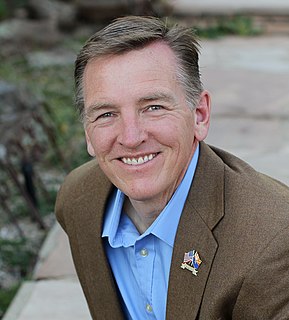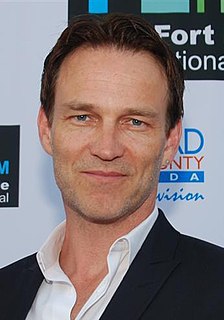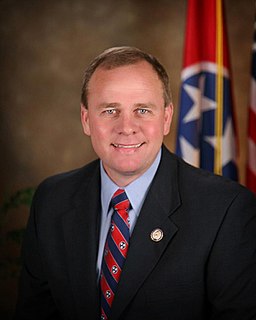A Quote by Paul Gosar
The EPA has no legal authority to expand the definition of navigable waters under the Clean Water Act, as the Supreme Court has repeatedly made clear.
Quote Topics
Related Quotes
The Obama administration's Clean Power Plan was stayed by the Supreme Court. That was an historic stay. They had never stepped in at that stage in litigation and actually issued a stay for a Clean Air Act regulation. They did that because I believe the Clean Power Plan was outside of the Clean Air Act. It was outside the bounds of the law.
The notion that the Supreme Court comes up with the ruling and that automatically subjects the two other branches to following it defies everything there is about the three equal branches of government. The Supreme Court is not the supreme branch. And for God's sake, it isn't the Supreme Being. It is the Supreme Court.
Class warfare always sounds good. Taking action against the rich and the powerful and making 'em pay for what they do, it always sounds good. But that's not the job of the Supreme Court. The Supreme Court standing on the side of the American people? The Supreme Court adjudicates the law. The Supreme Court determines the constitutionality of things and other things. The Supreme Court's gotten way out of focus, in my opinion.
Water is life. We are the people who live by the water. Pray by these waters. Travel by the waters. Eat and drink from these waters. We are related to those who live in the water. To poison the waters is to show disrespect for creation. To honor and protect the waters is our responsibility as people of the land.
The fact that you have a policy of such consequence directly affecting millions of people and you have a legal question of great consequence about the scope of the president's authority to act in implementing the immigration laws in this way and you have a one-line decision from the court affirming by an equally-divided court, it's an inevitable consequence of where we are.






























